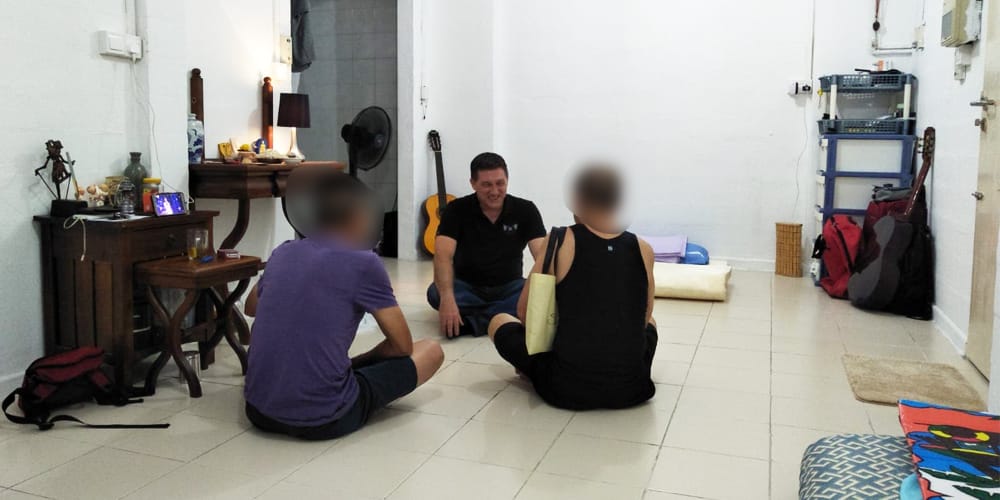 I refer to the article, “Bosses hiring foreigners over S’poreans? Not true”. (Straits Times, 8 April).
I refer to the article, “Bosses hiring foreigners over S’poreans? Not true”. (Straits Times, 8 April).
It states that: “More Singaporeans are complaining that employers prefer to hire foreigners over them. But investigations by a tripartite panel that looks at work discrimination issues found that the accusations were invariably unfounded.
The alliance does not keep track of the number of complaints, but “we do see more of them”, she (Madam Halimah Yacob, a labour MP who is co-chairman of the Tripartite Alliance for Fair Employment Practices (Tafep) told reporters at the sidelines of a conference on fair employment practices”.
The fact that “the alliance does not keep track of the number of complaints” makes one wonder about the veracity of Tafep’s conclusion that employers are not hiring foreigners over Singaporeans.
Is it so difficult to just count the number of complaints?
Where and to whom do you complain to, if you feel that you have been say displaced by a foreign worker? I certainly don’t know, and I don’t think most Singaporeans even know that they can file such complaints.
So, without a widely known complaint mechanism, how on earth did the Tafep come to such a conclusion?
Tafep should start an awareness campaign to encourage Singaporeans to file instances of being disfavoured over foreigners. What process and mechanism did the Tafep use in investigating the complaints which they had?
Who did what, and how were the investigations done?
Can the reports and findings be made public?
It is perhaps quite telling that Madam Halimah Yacob said, “In the cases we have intercepted, employers say this is based on the qualifications of the person and not nationalities.”
Isn’t it obvious that when you ask the employer, they would say this?
Surely, one needs to investigate how the preference over the local workers was determined and derived, considering that foreigners have the advantage of no CPF contribution savings for the employer, no maternity leave, no national service reservist leave, and no turnover problems as foreigners on work permits and S-Pass cannot change employers for two years.
For the Tafep to ignore the above realities on the ground, and make its conclusion, leaves me speechless!
Anecdotally, you just have to go around Singapore and see how many more foreigners are pre-dominantly doing jobs that Singaporeans can do, like engineers, administrative staff, receptionists, sales, I.T., etc.
Statistically, the fact that the growth rate of foreigners has been many times that of citizens in recent years, such that there are about one million foreigners and 550,000 permanent residents (PRs), may indicate that surely some jobs may be taken away by foreigners.
Over the last two years, there were about 140,000 new PRs and 40,000 new citizens.
If Tafep’s conclusion is indeed “true”, why do we consistently refuse to break down the labour statistics into Singaporeans and PRs?
If we are in a debate, perhaps the best and final argument is the self-evident and contradictory rhetoric in recent months about reducing foreign workers, increasing foreign worker levies so that more Singaporeans will be hired instead, etc.
For, if the Tafep’s conclusion is indeed “true”, then does it mean that all the recent rhetoric were based on an erroneous premise?
In another Straits Times report on the same day, “Workplace diversity ‘a big plus’” (ST, Apr 8), it said “To ensure meritocracy continues to flourish, there is no place for discrimination in any form in the workplace. The people expect and demand it as part of the founding social compact.
With employers upholding the principle of selecting the best for the job, DPM Teo believes there is no need for affirmative action programmes to force employers to hire certain groups of people.
“Employees must not conveniently use the excuse of perceived discriminatory work practices to cover up for their own work inadequacies.”
So, the $64,000 question may be what is the extent of age discrimination in the labour force?
 The answer may lie in the fact that employers are at liberty to offer reduced salary and other terms of employment when workers turn 55 or 62, as the case may be.
The answer may lie in the fact that employers are at liberty to offer reduced salary and other terms of employment when workers turn 55 or 62, as the case may be.
Anecdotally, it was reported in the media, that even one of the local universities was offering a 50 per cent pay cut for some academic staff when they reach 55 years old.
Another indicator may be that the highest long term unemployment rate was that of PMETs who are over-40 years old.
So, is it any wonder why the NTUC said recently that it is puzzled over the mystery of older men in their 50s quitting the workforce?
What we need is an independent comprehensive study on age and nationalities discrimination in the labour force, instead of just opinionated statements like, “Employees must not conveniently use the excuse … “
What we direly need is an Equal Opportunities Commission (EOC) like that in Hong Kong, which handles 20,852 enquiries and 1,230 complaints in 2009.
There will always be discrimination, perhaps the difference may be whether we care enough to take concrete action to address it.
Leong Sze Hian






